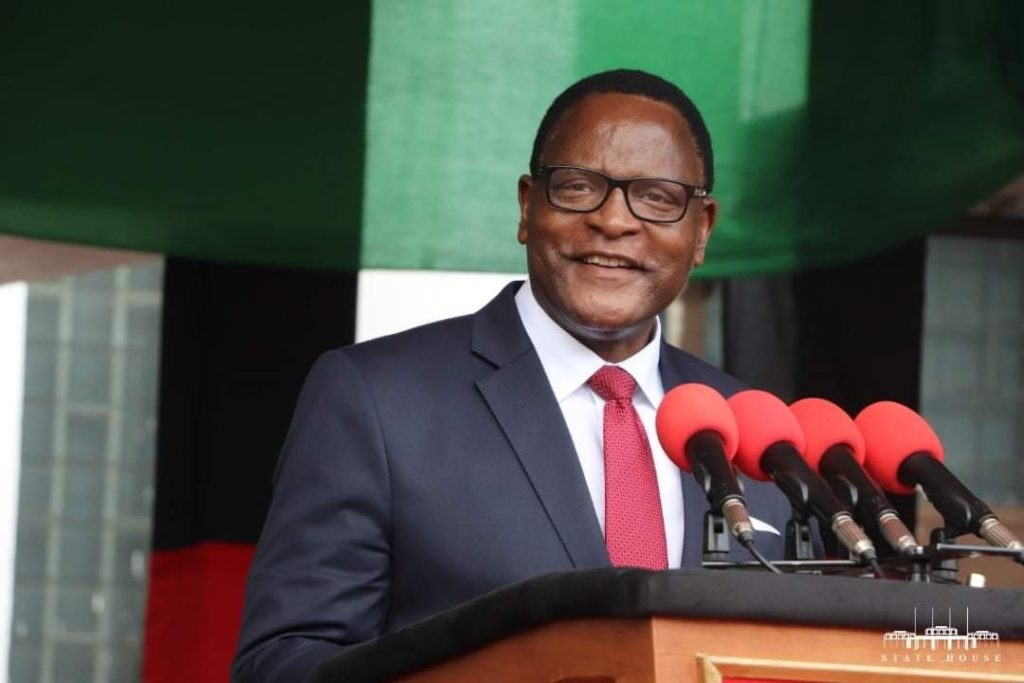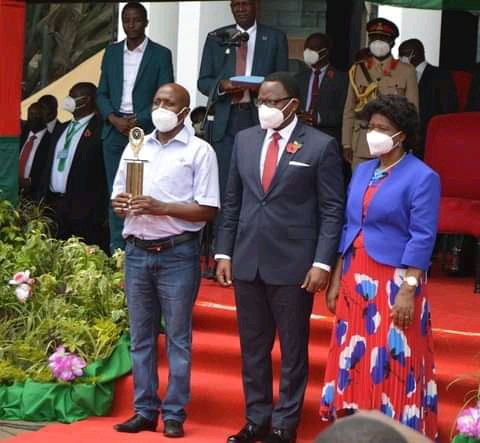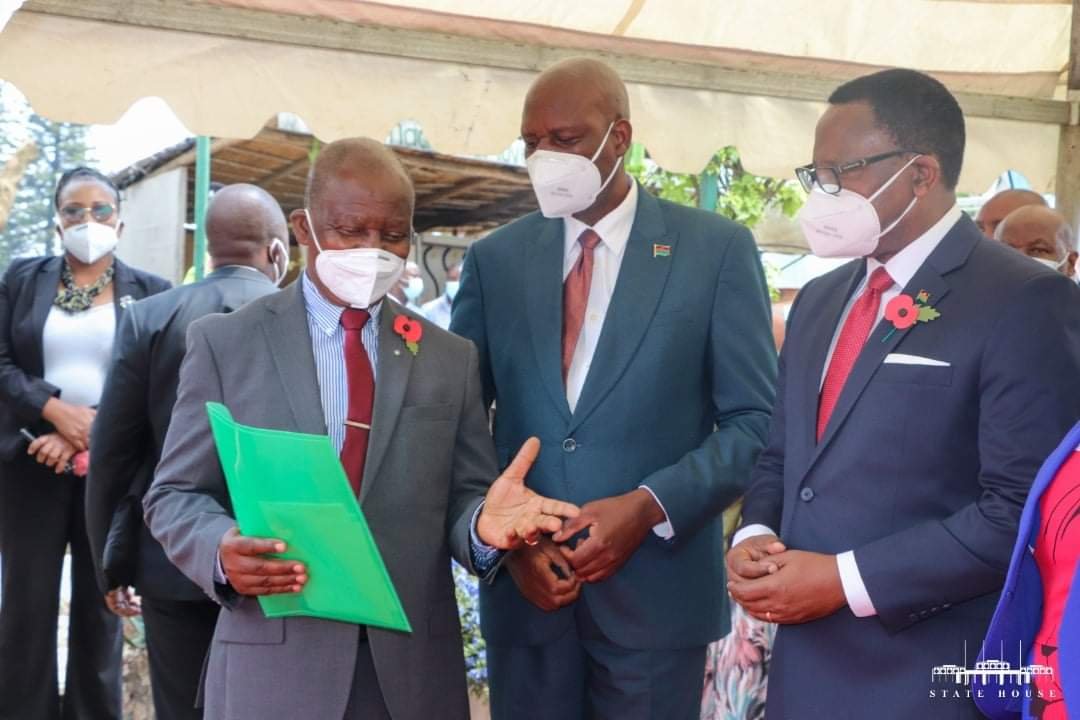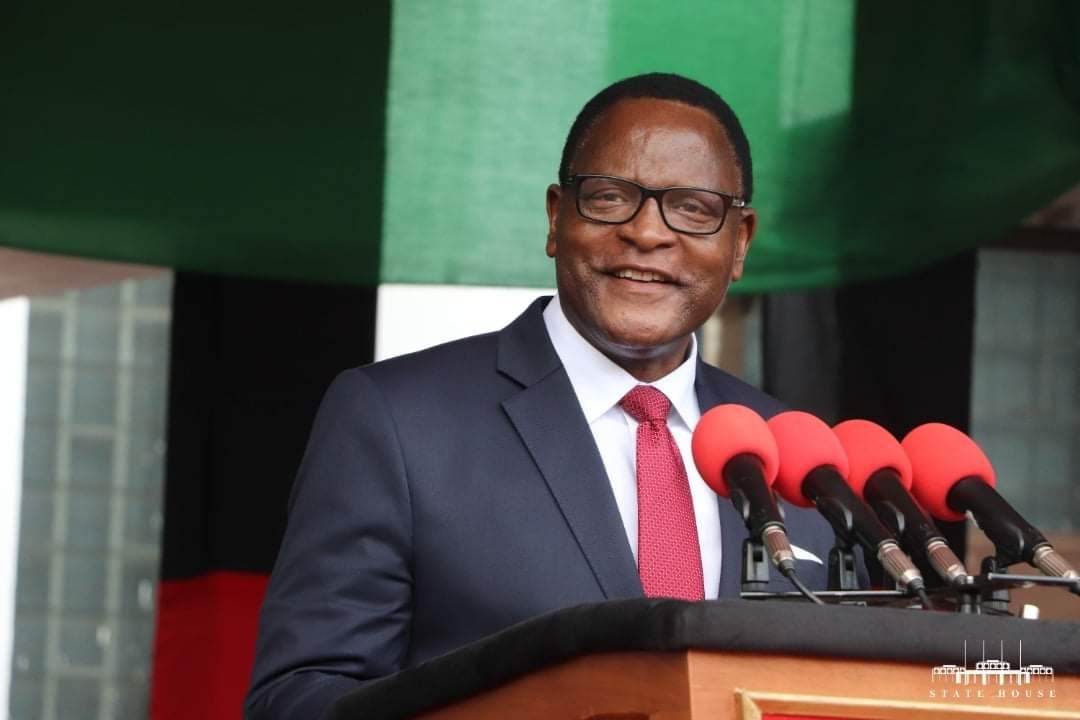By Chikumbutso Mtumodzi
President Lazarus Chakwera has always emphasized that agriculture remains a key driver of the country’s economy. Indeed, agriculture employs about 85 percent of the workforce and contributes over 80 percent to the total export earnings.
Before President Chakwera and his Malawi Congress Party (MCP) administration came to power, Malawi’s agriculture’s potential was yet to be fully exploited for it to contribute to fundamental structural transformation and sustainable development. The development of the country’s agricultural sector was hampered by farmers’ challenges in accessing inputs and markets, land especially for women, new and appropriate technologies, extension services and poor agricultural infrastructure.

Under the leadership of President Chakwera and his administration, a comprehensive programme of agricultural transformation is being implemented to set the stage for fundamental structural transformation and sustainable development.
According to President Chakwera, agricultural transformation is key to boosting labour productivity, increasing agricultural surplus to accumulate capital and increasing foreign exchange via exports. In fact, in order to end hunger and under-nutrition while accelerating economic growth, agricultural transformation must become a reality.
The vision of the MCP has been to create an agricultural sector that emphasizes the importance of increased agricultural productivity and linkages to domestic markets, self-sufficiency in food production, tackling massive unemployment of youth and women, poverty reduction and strong private sector participation.
President Chakwera and the MCP understand agricultural transformation as involving restructuring the sector, a focus on activities and interventions that raise productivity, and the modernization of agriculture.
The key preconditions for agricultural transformation include the stability of the political economy, the long-term consistency of policies and an acknowledgement of the importance of public investment.
The ultimate goal of President Chakwera and his government is to increase agriculture’s contribution to economic growth by not only increasing production for food security, but also for agro-processing and manufacturing for both domestic and export markets.
To achieve this agenda, the Chakwera administration is working towards prioritizing land access and tenure; agribusiness development with particular focus on youth and women; agricultural productivity and development; agriculture extension and appropriate technology; market access and development, climate change and agricultural development; and management for agricultural transformation.

17TH AGRICULTURAL FAIR
The National Agriculture Fair is an annual public event organized by the Malawi Confederation of Chambers of Commerce and Industry in close collaboration with the Ministry of Agriculture.
The National Agriculture Fair provides an ideal forum for agricultural value chain players to interact and discuss business deals that are meant to promote agricultural commercialization, industrialization and facilitate linkages among various agricultural value chain players. It is, therefore, envisaged that the value chain players will discuss the best ways of improving access to financial services, value addition and markets.
The theme 17th National Agricultural Fair National Agriculture Fair is ‘Building the Agriculture Sector Back and Better in a Covid-19 Environment’.
When he officially opened the 17th National Agricultural Fair at the Trade Fair Grounds in Blantyre on Friday, 12 November, 2021, President Chakwera indicated that he believes that without enhancing production to fully exploit the agricultural sector’s potential, Malawi will always grapple with problems of endemic food insecurity, undernutrition, malnutrition and severe poverty.
The Malawi 2063 Agenda identifies agriculture productivity and commercialization as one of the three pillars. The 17th National Agricultural Fair is one of the steps towards achieving the commercialisation of the Malawi agriculture sector as it is envisioned in the Malawi 2063 Agenda. It is also a means to creating an inclusive, self-reliant and wealthy nation.
OBJECTIVES
According to Agriculture Minister, Robin Lowe, the 17th National Agricultural Fair has been organized to expose producers to new developments in technologies, value addition, marketing and financial arrangements; promoting partnerships and linkages among various business players in the sector; sharing ideas and experiences in agricultural finance, value addition and marketing; and facilitating market access for various agricultural value chain actors.
The National Agriculture Fair is organized to reflect on the dominance of agriculture in the Malawi economy and the challenges that the sector has faced over the past two years due to the Covid-19 Pandemic. All exhibitors have been encouraged to reconsider their roles in ensuring that issues of Covid-19 are mainstreamed for the development of the agricultural sector.
CONCLUSION
Indeed, President Chakwera and his government consider agriculture as one of your priorities as is clearly reflected in the 2020/2021 Annual Budget and other strategic policy documents such as the Malawi 2063, the First Malawi Implementation Plan, the National Agriculture Policy, which is currently under review, and all other equally important strategic documents available.
The Malawi Confederation of Chambers of Commerce and Industry and all exhibitors present at this year’s Fair have been instrumental in making the Fair possible.




